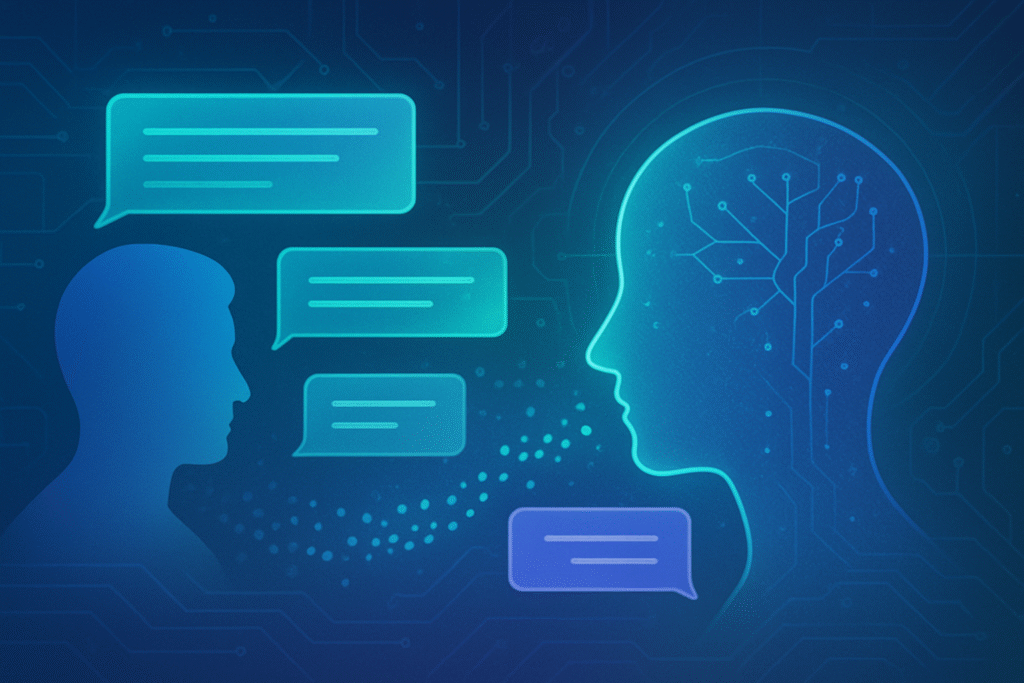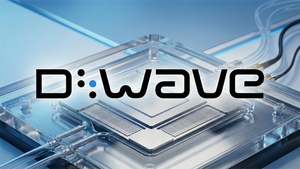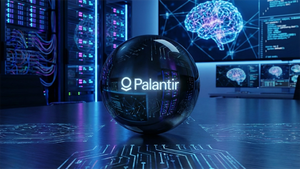
Menlo Park, CA – October 2, 2025 – Meta Platforms (NASDAQ: META) has announced a significant evolution in its advertising strategy, revealing plans to integrate conversations with its generative AI chatbot, Meta AI, into its ad targeting mechanisms. This groundbreaking move, set to take effect on December 16, 2025, in most regions, promises to deliver hyper-personalized advertisements and content across its vast ecosystem of apps, including Facebook, Instagram, and WhatsApp. However, the announcement has immediately ignited a global debate, raising profound privacy and ethical questions about how personal AI interactions will be leveraged for commercial gain, particularly given the absence of a direct opt-out option for users who engage with Meta AI.
The tech giant asserts that this integration is a natural progression aimed at enhancing user experience by providing more relevant content and ads. By analyzing both text and voice interactions with Meta AI, the company intends to glean deeper insights into user interests, allowing for a more granular and timely personalization than ever before. While Meta has committed to excluding sensitive topics from this targeting, privacy advocates and experts are voicing strong concerns about the erosion of user control, the normalization of pervasive digital surveillance, and the potential for intrusive advertising that blurs the lines between personal interaction and commercial exploitation.
The Technical Underpinnings of Hyper-Personalization
Meta's new ad targeting approach represents a substantial technical leap, moving beyond traditional behavioral data to incorporate direct conversational insights. The core mechanism involves Meta's proprietary Large Language Model (LLM)-based Meta AI platform, which functions akin to other advanced generative AI tools. This system will process both text and voice interactions with Meta AI, treating them as additional "clues" to understand user interests. For instance, a discussion about a hiking trip with Meta AI could lead to targeted ads for hiking gear, recommendations for local trail groups, or related content appearing in a user's feed.
This method technically differs from Meta's previous ad targeting, which primarily relied on "behavioral data" derived from user interactions like likes, shares, comments, and connections. While those methods were inferential, the integration of AI chat data introduces a layer of "direct and intentional" input. Users are, in essence, explicitly communicating their interests, plans, and needs to Meta's AI, allowing for potentially "hyper-targeted" ads based on deeply personal and specific queries. This conversational data is designed to "further enrich the profiles" Meta already maintains, enabling "more granular persona identification" across linked Meta accounts. The company also plans to incorporate data from other AI products, such as its AI image generator "Imagine" and AI video feed "Vibes," as well as interactions via Ray-Ban Meta smart glasses, to refine targeting further.
Initial reactions from the AI research community and industry experts are mixed, leaning heavily towards concern. While acknowledging the technical sophistication, experts are highly skeptical about the feasibility of accurately filtering out sensitive topics—such as religious views, sexual orientation, or health information—as promised by Meta. The nuances of human conversation mean that interests can implicitly touch upon sensitive areas, raising questions about the AI's ability to guarantee exclusion without inadvertently inferring or misusing such data. The lack of an opt-out mechanism, beyond completely avoiding Meta AI, is also a major point of contention, with critics calling it a "new frontier in digital privacy" that normalizes a deeper level of digital surveillance. Past incidents of Meta's AI apps inadvertently disclosing sensitive user chats have only amplified these technical and ethical anxieties.
Reshaping the AI and Advertising Landscape
Meta's aggressive move into AI-driven ad targeting is poised to send ripples across the tech and advertising industries, reshaping competitive dynamics and market positioning. While Meta (NASDAQ: META) stands as the primary beneficiary, the implications extend to a broader ecosystem.
Advertisers, particularly small and medium-sized businesses (SMBs), are expected to benefit significantly. The promise of hyper-personalized campaigns, fueled by granular insights from AI chat interactions, could lead to substantially higher conversion rates and improved return on investment (ROI). This "democratization" of sophisticated targeting capabilities could empower smaller players to compete more effectively. AI ad tech companies and developers capable of adapting to and integrating with Meta's new AI-driven mechanisms might also find new opportunities in optimizing campaigns or refining ad creatives.
However, the competitive implications for major AI labs and tech giants are substantial. Meta's push directly challenges Google (NASDAQ: GOOGL), especially with Meta's reported development of an AI-powered search engine. Google is already integrating its Gemini AI model into its products and showing ads in AI overviews, signaling a similar strategic direction. Microsoft (NASDAQ: MSFT), through its partnership with OpenAI and Copilot advertising efforts, is also a key player in this AI arms race. Meta's aspiration for an independent AI search engine aims to reduce its reliance on external providers like Microsoft's Bing. Furthermore, as Meta AI aims to be a leading personal AI, it directly competes with OpenAI's ChatGPT, potentially pushing OpenAI to accelerate its own monetization strategies for chatbots. The reported early talks between Meta and both Google Cloud and OpenAI for ad targeting highlight a complex interplay of competition and potential collaboration in the rapidly evolving AI landscape.
This development also threatens to disrupt traditional advertising and marketing agencies. Meta's ambition for "full campaign automation" by 2026, where AI handles creative design, targeting, and optimization, could significantly diminish the need for human roles in these areas. This shift has already impacted stock prices for major advertising companies, forcing agencies to reinvent themselves towards high-level strategy and brand guardianship. For smaller ad tech companies, the impact is bifurcated: those that can complement Meta's AI might thrive, while those reliant on providing audience targeting data or traditional ad management tools that are now automated by Meta's AI could face obsolescence. Data brokers may also see reduced demand as Meta increasingly relies on its vast trove of first-party conversational data.
A New Frontier in AI's Societal Impact
Meta's integration of AI chatbot conversations for ad targeting signifies a pivotal moment in the broader AI landscape, intensifying several key trends while simultaneously raising profound societal concerns. This move is a clear indicator of the ongoing "AI arms race," where hyper-personalization is becoming the new standard across the tech industry. It underscores a strategic imperative to move towards proactive, predictive AI that anticipates user needs, analyzing dynamic behavior patterns and real-time interactions to deliver ads with unprecedented precision. This capability is not merely about enhancing user experience; it's about cementing AI as a core monetization engine for tech giants, echoing similar moves by OpenAI and Google to integrate shopping tools and ads within their AI products.
The societal impacts of this development extend far beyond advertising effectiveness. While hyper-relevant ads can boost engagement, they also raise significant concerns about consumer behavior and potential manipulation. AI's ability to predict behavior with remarkable accuracy from personal conversations could make consumers more susceptible to impulse purchases or subtly influence their decisions. Moreover, by continually serving content and ads aligned with expressed interests, Meta's AI risks exacerbating information bubbles and echo chambers, potentially limiting users' exposure to diverse perspectives and contributing to a more fragmented societal understanding. The very act of processing intimate conversational data, even with assurances of excluding sensitive topics, raises ethical questions about data minimization and purpose limitation in AI development.
Beyond individual privacy, broader criticisms focus on the erosion of user control and the potential for a "creepy" factor when ads directly reflect private conversations. This lack of transparency and control can significantly erode trust in Meta's AI systems and digital platforms, a relationship already strained by past data privacy controversies. Critics also point to the potential for digital inequality, referencing Meta's previous paid privacy model in the EU, where users either paid for privacy or accepted extensive tracking. This raises concerns that users unwilling or unable to pay might be left with no option but to accept pervasive tracking. Furthermore, the increasing automation of ad creation and targeting by AI could disrupt traditional roles in advertising, leading to job displacement. This development is expected to invite significant scrutiny from regulatory bodies worldwide, particularly given Meta's exclusion of the UK, EU, and South Korea from the initial rollout due to stricter data protection laws like GDPR and the impending EU AI Act. This move represents an evolution in AI's application in advertising, moving beyond static data analysis to dynamic behavior patterns and real-time interactions, making data collection far more granular and personal than previous methods.
The Horizon: Challenges and Predictions
Looking ahead, Meta's AI ad targeting strategy is poised for both rapid evolution and intense scrutiny. In the near term, starting December 16, 2025, users will see ads and content recommendations informed by their interactions with Meta AI, Ray-Ban Meta smart glasses, and other AI products. The absence of a direct opt-out for Meta AI users will likely be a flashpoint for ongoing debate. Long-term, CEO Mark Zuckerberg envisions Meta AI becoming the "leading personal AI," with deep personalization, voice conversations, and entertainment at its core. Future developments could include ads directly within AI products themselves, and by 2026, Meta aims for full campaign automation, where AI generates entire ad campaigns from minimal advertiser input.
Potential new applications emerging from this technology are vast. Hyper-personalized recommendations could become incredibly precise, leading to higher engagement and conversion. AI insights will tailor content feeds for enhanced discovery, and AI could offer more context-aware customer service. The ability to capture real-time intent from conversations offers a "fresher" signal for ad delivery. Ultimately, AI assistants could become seamless digital companions, offering predictive, adaptive experiences that deeply integrate into users' daily lives.
However, the path to widespread and responsible implementation is fraught with challenges. Technically, ensuring accuracy in interpreting conversational nuances and preventing the generation of harmful or inappropriate content remains critical. The risk of algorithmic bias, perpetuating societal prejudices, is also a significant concern. Regulatorily, global privacy laws, particularly the EU's AI Act (effective August 2024 for foundational models), will impose strict oversight, transparency requirements, and substantial fines for non-compliance. The deliberate exclusion of the EU, UK, and South Korea from Meta's initial rollout underscores the impact of these stricter environments. Ethically, the lack of an opt-out, the handling of sensitive information, and the potential for "chatbait" and manipulation raise serious questions about user control, trust, and the erosion of digital autonomy. Experts warn that AI agents in social contexts could heighten exposure to misinformation and harmful content.
Experts predict an intensified "AI arms race" among tech giants. Competitors like Google (NASDAQ: GOOGL) and Amazon (NASDAQ: AMZN) are already monetizing their AI products, and OpenAI is introducing shopping tools in ChatGPT. Other platforms will be compelled to accelerate their AI investments and develop similarly sophisticated personalization strategies. The focus will shift towards "generative engine optimization," where brands need to be featured directly in AI responses. Concurrently, regulatory scrutiny of AI is intensifying globally, with an anticipated ethical backlash and regulatory clampdown forcing a more conservative approach to data exploitation. The EU's AI Act is setting a global precedent, and investors are increasingly scrutinizing companies' ethical frameworks alongside financial performance, recognizing AI governance as a critical risk factor.
A Defining Moment for AI and Digital Ethics
Meta's decision to leverage AI chatbot conversations for ad targeting marks a defining moment in the history of artificial intelligence and digital ethics. It underscores the incredible power of advanced AI to understand and predict human behavior with unprecedented precision, promising a future of hyper-personalized digital experiences. The immediate significance lies in the profound shift towards integrating deeply personal interactions into commercial targeting, setting a new benchmark for data utilization in the advertising industry.
The long-term impact will likely be multi-faceted. On one hand, it could usher in an era of highly relevant advertising that genuinely serves user needs, potentially boosting economic activity for businesses of all sizes. On the other hand, it raises fundamental questions about the boundaries of digital privacy, user autonomy, and the potential for AI-driven platforms to subtly influence or manipulate consumer choices. The absence of a direct opt-out, the technical challenges of sensitive topic exclusion, and the broader societal implications of information bubbles and eroding trust present significant hurdles that Meta and the wider tech industry must address.
As we move into the coming weeks and months, all eyes will be on Meta's implementation of this new policy. We will be watching for the public reaction, the nature of regulatory responses, and how Meta navigates the complex ethical landscape. The competitive landscape will also be a key area of observation, as rival tech giants respond with their own AI monetization strategies. This development is not just about ads; it's about the future of our digital interactions, the evolving relationship between humans and AI, and the critical need for robust ethical frameworks to guide the next generation of artificial intelligence.
This content is intended for informational purposes only and represents analysis of current AI developments.
TokenRing AI delivers enterprise-grade solutions for multi-agent AI workflow orchestration, AI-powered development tools, and seamless remote collaboration platforms.
For more information, visit https://www.tokenring.ai/.





